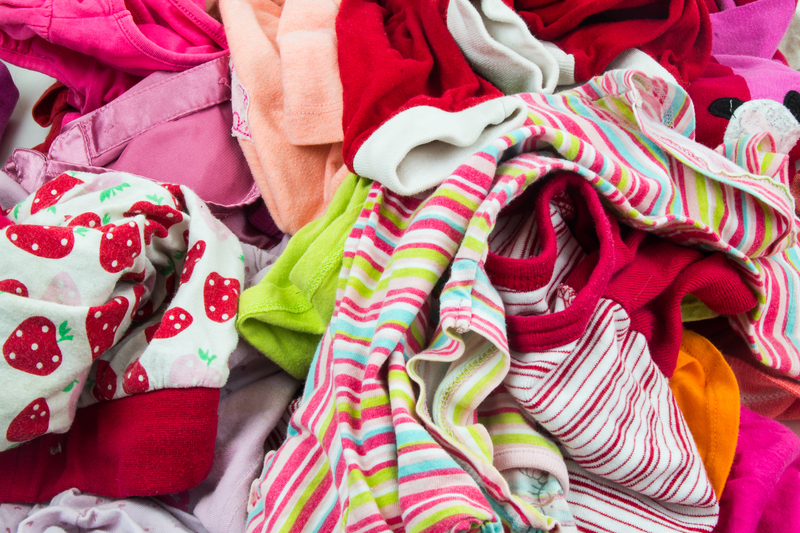Leave It to the Experts: What You Need to Know About Moving a Piano
Moving a piano isn't your average DIY task. Whether you own a grand piano, an upright, or a cherished family heirloom, attempting to relocate such a massive, sensitive instrument requires planning, precision, and, most importantly, expertise. In this article, we'll uncover why you should leave piano moving to the professionals, what risks are involved with moving a piano yourself, how to choose the right piano movers, and what to expect before, during, and after your move. Let's get started and ensure your beloved instrument arrives at its new home in perfect harmony.
Why Is Moving a Piano So Challenging?
Pianos are more than just heavy furniture. Their intricate design, delicate components, and considerable value elevate the stakes when it comes to relocation. Here are just a few factors that make moving a piano a uniquely demanding job:
- Sheer Weight: Upright pianos can weigh from 300-500 pounds, while grand pianos can tip the scales at 1,200 pounds or more.
- Delicate Mechanisms: Each piano contains thousands of moving parts, strings, and felt pads that can be easily damaged by jostling or improper lifting.
- Size and Shape: Pianos are often awkwardly shaped, irregular in weight distribution, and hard to maneuver through tight spaces or up staircases.
- Surface Sensitivity: A piano's finely finished wood can be scratched, dented, or weather-affected if not protected properly.
The True Cost of Mishandling
Trying to move a piano yourself might seem like a money-saving measure, but a single slip can be costly. Damage to the instrument itself, injury to movers (amateur or otherwise), and liability for property damage all come with a price tag. In severe cases, pianos have been rendered unplayable by botched moves, requiring extensive repairs or even full replacement.

Why Hire a Professional Piano Mover?
When it comes to piano removal and relocation, hiring trained specialists provides far-reaching benefits. Here are compelling reasons to trust professionals with your prized instrument:
- Expertise in Handling All Piano Types: Professional movers know how to safely handle uprights, baby grands, grand pianos, and specialty models, considering each instrument's unique vulnerabilities.
- Proper Tools & Equipment: Experts arrive with all necessary equipment, such as piano dollies, heavy-duty straps, padding, and custom-built skids for stairs or tricky terrain.
- Safe Navigation through Obstacles: Experienced movers are adept at maneuvering pianos through doorways, elevators, and challenging spaces without injury or property damage.
- Insured Services: When you hire professionals, you're protected against accidental damage or loss, giving you peace of mind throughout the process.
- Efficient and Timely Removal: Seasoned piano movers can complete the job safely and efficiently, minimizing disruption to your schedule.
Types of Pianos and How They Are Moved
Different types of pianos require different handling techniques. Here's what you need to know about various piano types and their moving needs:
Upright Pianos
Upright pianos are more compact and somewhat easier to move than grand pianos, but their weight and size still pose challenges. They require strong, stable lifting by multiple people, and careful protection around the corners and legs.
Grand and Baby Grand Pianos
Moving a grand or baby grand involves more complexity. Professionals will typically remove the lids, legs, and pedals, wrap the pieces, and carefully position the main body onto a skid. This method protects both the piano and your property during navigation.
Digital Pianos
Digital pianos are generally lighter but still require gentle handling to avoid damage to electronic components and fragile keys.
Risks of DIY Piano Moving
What Could Go Wrong?
- Personal Injury: Back injuries, crushed fingers, and trips or falls are common risks without proper technique or teamwork.
- Damage to the Piano: Accidental drops, bumps, or exposure to moisture and temperature swings can harm your instrument's frame, tuning, and appearance.
- Property Damage: Walls, floors, doors, and stairs can all suffer scratches, dents, or worse during an awkward move.
- Voided Insurance: Insurance policies usually don't cover damage from DIY moves.
Long-Term Damage
Sometimes, damage won't show up immediately. Internal components may be knocked out of alignment, leading to costly repairs or permanent issues with your piano's sound and playability.
Choosing the Right Professional Piano Movers
When hiring a piano moving service, not all companies are created equal. Here's how you can make the right choice:
- Experience: Look for companies with several years (or decades!) specializing in piano relocations.
- References & Reviews: Positive customer feedback and a solid reputation are key indicators of quality.
- Insurance: Ensure your chosen mover carries appropriate liability and service insurance for protection.
- Equipment: Verify that movers use professional-grade tools and have access to resources for challenging environments (like high-rise apartments, stairs, or uneven paths).
- Transparent Pricing: Obtain a clear quote upfront. Professionals will usually require details about the piano, locations, potential obstacles, and distances involved.
How Professional Piano Moving Works: Step by Step
Curious about what happens during a professional piano move? Here's a typical sequence of events you can expect:
1. Pre-Move Assessment
- Movers will ask about your piano type, exact dimensions, pickup/delivery locations, and any access challenges (stairs, elevators, narrow doors, etc.).
- An on-site visit may be scheduled for detailed planning.
2. Preparation and Protection
- Movers bring blankets, shrink wrap, and custom covers to shield your piano from bumps and scratches.
- Vital components (like the lid, pedals, or legs) may be removed on grand pianos for safer transport.
3. Safe Lifting and Carrying
- A coordinated team lifts, steadies, and moves the piano using purpose-built dollies, skids, and ramps as necessary.
- All steps, corners, and tight spaces are navigated slowly and deliberately.
4. Secure Transportation
- Pianos are loaded into climate-controlled trucks and securely strapped to prevent shifting.
5. Delivery and Setup
- Upon arrival, your piano is carefully reassembled (if necessary) and placed exactly where you want it in your new space.
- Some movers even offer piano tuning services after delivery.
Cost of Professional Piano Moving
The price for piano moving services depends on several variables:
- Type and size of the piano (uprights are less expensive than large grands).
- Distance between pickup and delivery.
- Number of flights of stairs or obstacles.
- Whether timing requires special planning (weekends/holidays).
On average, local piano moves range from $150 to $600. Long-distance or complex moves may cost upwards of $1,000 or more. Although it may seem like a significant investment, this covers insurance, labor, equipment, fuel, and peace of mind.
Preparation Tips Before Your Piano Move
Once you've booked your piano movers, you still play a vital role in ensuring the process goes smoothly. Here are some steps you can take:
- Clear the Pathways: Remove furniture, rugs, or clutter along the intended route inside both the old and new properties.
- Secure Children & Pets: Arrange for kids or pets to be out of the way during moving hours to reduce risks and distractions.
- Inform Neighbors: If moving in or out of an apartment or shared space, let neighbors know about the move to prevent issues with noise or blocked access.
- Document the Piano's Condition: Take detailed photos of your piano before moving day for insurance purposes.
What To Do After Your Piano Is Moved
Your piano's journey doesn't end once it's inside its new home. Follow these post-move tips to keep your instrument in top shape:
- Allow the Piano to Acclimate: Let the instrument sit for a few days at room temperature before tuning, as temperature and humidity shifts can affect its sound.
- Schedule Tuning and Servicing: Have a qualified piano technician tune your instrument; even the most careful move can impact pitch and stability.
- Inspect for Damage: Though rare when handled by experts, check your piano for any scratches, chips, or performance issues, and address them promptly with your moving company if necessary.
- Optimal Placement: Place your piano away from heat sources, direct sunlight, or damp areas to extend its lifespan.

Frequently Asked Questions About Piano Moving
Is it safe to move a piano upstairs or downstairs?
With professional movers, yes. They use special equipment such as piano skids and harnesses, making stair navigation feasible and safe. Avoid DIY attempts on stairs due to serious risk of injury or damage.
Can a regular moving company move my piano?
While some full-service movers offer piano moving services, always verify their experience and insurance specifically for pianos. Specialist companies are preferred for high-value or antique instruments.
How should I prepare my home for the move?
Clear all obstacles and ensure adequate space for moving the piano into and out of rooms. Communicate any challenges (like tight corners or stairs) in advance to your movers.
What's the best way to store a piano during a move?
Some companies offer climate-controlled storage. Never leave a piano in garages, sheds, or outdoors, as humidity and temperature extremes will damage it quickly.
Conclusion: Leave Piano Moving to the Pros
Relocating a piano isn't simply about muscle--it's about expertise, experience, and protection for your investment. Even the smallest mistake can cost thousands in repairs, or worse, irreplaceable loss of your instrument's sound and sentimental value. From understanding the complexities of different piano types to utilizing specialized tools and ensuring safe transport, professional piano movers are prepared for every step in the journey.
If you value your piano's beauty, sound, and longevity, trust moving a piano to the experts. Invest in specialized movers who have the knowledge and equipment to make your transition smooth and stress-free. In the end, you'll be glad you left it to the professionals!
For a flawless move, research trusted piano moving specialists in your area, and enjoy the peace of mind that comes from true expertise.



